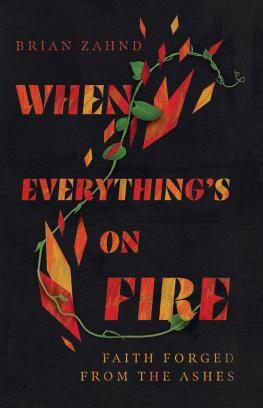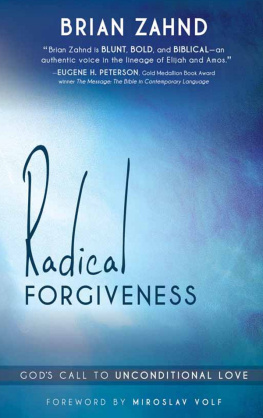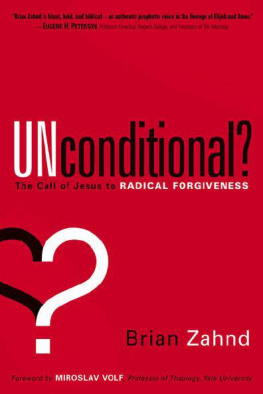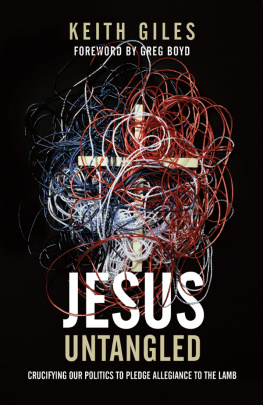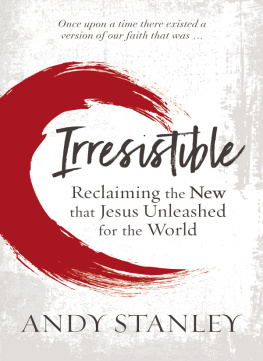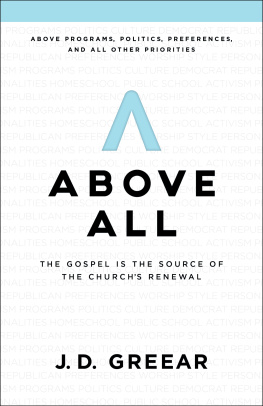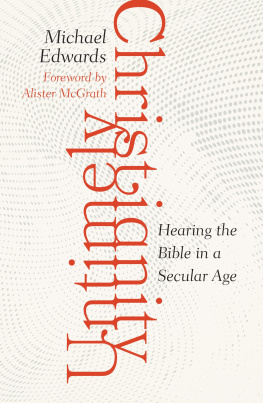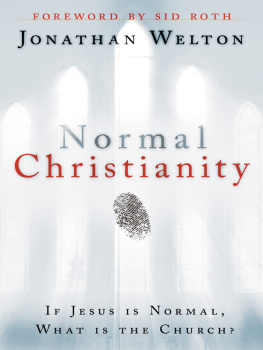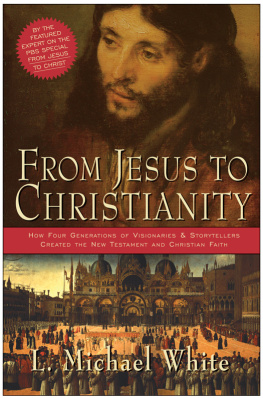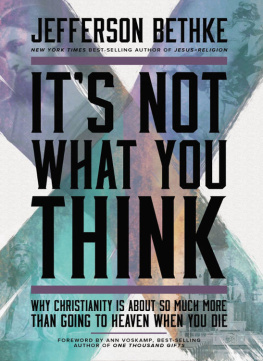Praise for Postcards From Babylon
If I had miraculous powers, I would interrupt the programming of every religious broadcast in America, then, as Jesus replaced water with wine, I would substitute the message from Brian Zahnd that youll read in this book. Read it and youll see why. I recommend that you buy two copies of this book. Immediately read oneunderline it and extract quotes from it to share on Facebook and Twitter, and refer to it in sermons and casual conversations. Send the other to that friend or relative who likes to talk about God and country. Include a note asking if theyd be willing to talk with you about it after they read it. Then see what happens as these Postcards From Babylon do their work in you and in others.
Brian D. McLaren, author of The Great Spiritual Migration
This love letter from a concerned pastor will enrage contemporary Pharaohs and their false prophets who blaspheme by blessing everything that Christ came to free us from. Postcards From Babylon diagnoses the diabolical and invites us to become pilgrims on Christs narrow road that delivers us out into life.
Jarrod McKenna, pastor, founder of First Home Project for refugees in Australia
Now in a bold and daring articulation, Brian Zahnd has sketched a Theology of the Cross for our time and place in the United States of the twenty-first century. He does so in a way that deeply resonates with the primal claims of evangelical theology. He sees that the Gospel is inherently and inescapably countercultural because the God of the Gospel is in particular and passionate solidarity with the left behind.
Walter Brueggemann, Columbia Theological Seminary

Postcards From Babylon
Copyright 2019 by Brian Zahnd
www.brianzahnd.com
Published by Spello Press
All rights reserved. No part of this publication may be reproduced, stored in a retrieval system, or transmitted in any form by any means, electronic, mechanical, photocopy, recording, or otherwise, without the prior permission of the author.
Unless otherwise noted, scripture quotations are from the New Revised Standard Version Bible, copyright 1989, Division of Christian Education of the National Council of the Churches of Christ in the United States of America. Used by permission. All rights reserved.
Cover design by Sarah Duet
Interior design by IndieDesignz.com
ISBN: 978-0-578-21377-4
For Jude, Mercy, Finn, Hope, Evey, Pax, and Liam.
I want to do all I can to help make Christianity possible for you and your generation. This book is part of that attempt.
She who is in Babylon greets you.
1 Peter 5:13
Table of Contents
Foreword
As long ago as the sixteenth century, Martin Luther boldly voiced a vigorous either/or for Christian faith in terms of a Theology of Glory and a Theology of the Cross. By the former Luther referred to an articulation of Gospel faith that smacked of triumphalism that was allied with worldly power that specialized in winning, control, being first, and being best. For Luther, that theology was all tied up with the European imperial of his time. By the contrast of a Theology of the Cross, Luther referred to the risky way of Jesus that is marked by humility, obedience, and vulnerability standing in sharp contrast to and in opposition to the hunger for Glory. The way of the cross, for Luther, is demanding and costly because it contradicts the dominant way of the world.
Now in a bold and daring articulation, Brian Zahnd has sketched a Theology of the Cross for our time and place in the United States of the twenty-first century. He does so in a way that deeply resonates with the primal claims of evangelical theology. He sees that the Gospel is inherently and inescapably countercultural because the God of the Gospel is in particular and passionate solidarity with the left behind.
In this daring articulation, Zahnd pulls no punches. He sees that so much of the American church has been cozily allied with the high claims of U.S. nationalism that readily tilts toward imperialism. The whole package of dominant triumphalist faith adds up to God and country, with country being the tail that wags the dog of God. Most particularly, this triumphalist alliance has a long history of attachment to military ideology, the winning of wars, and the domination of other nations and their resources and markets. In one of his many poetic renderings, Zahnd offers a nearly unbearable riff on the aggression of Achilles in the Iliad and completes the thought of Homer as he enumerates at great length the inventory of wars in which triumphalist Christianity has been eagerly and characteristically implicated. That long alliance with brutalizing power of course has deeply skewed everything in the faith, offering both a caricature of the God of the Gospel and a distorted notion of both discipleship and of citizenship. Before he finishes, Zahnd goes on to see how it is that the Trump administration is a near perfect embodiment of that ideology of lust, greed, and pride and how so much of the church has sadly colluded with the Trump administration in a pretend embrace of Gospel faith.
His manuscript pivots on the theme of exile because faithful obedience to the Lord of the Cross inevitably makes his followers outsiders to the empire world of Glory. It was as punishment (so the text avers) that Gods chosen ended in Babylon in exile. It turns out, however, that that scene of displacement was an unexpected opportunity for that ancient chosen people of God to recover vocation and to re-embrace a clear vision of what it meant (and means) to be chosen by the Lord of vulnerability. The concrete historical reference to exile in the biblical text becomes, for both biblical tradition and for this author, a metaphor for the characteristic location of the displaced from the force of empire.
The more I learn of Zahnds work, the more I have deep respect and appreciation for his truth-telling. This book is a reprimand and an invitation to his fellow evangelicals about how the way has been lost and what it will mean to come home, because it is a gift to come down where we ought to be! Beyond his more immediate circle, however, Zahnd addresses all of us, because all of us in the Christian community in the U.S. are too readily narcotized by the mantras of Caesar, Herod, Constantine, and their continuing heirs. The expos and ending of triumphalism in the church is a huge piece of work. Zahnd leaves no doubt that it is now our proper work that will require sustained energy and courage. It is, however, the only way to get to Easter liberty wherein the empire of death is known to be fake. The empire saturates us with the fake news of Glory. This book exposes those false promises because the way of empire can never make us safe or happy. This book also invites us to the good news of Gospel truth. The signature mark of Zahnds work is his poetic idiom that permits us fresh access to that emancipatory truth. This is indeed a postcard sent from our exilic habitat. It is filled with the news for which we have been waiting!
Walter Brueggemann
Columbia Theological Seminary
August 7, 2018
Chapter 1

Conversion, Catacombs,
and a Counterculture
I lived with them on Montague Street
In a basement down the stairs
There was music in the cafs at night
And revolution in the air
Bob Dylan, Tangled Up In Blue
It was a Saturday morning, and I awoke to Tangled Up In Blue on the radio. It was the first time Id really paid any attention to a Dylan song. I was mesmerized by the wild poetry that told a disjointed story with every verse ending with someone tangled up in bluewhatever that meant. I spent the day playing basketball and that evening went with a group of high school friends to a youth rally at the local college sponsored by the Fellowship of Christian Athletes. Id grown up in church so this wasnt particularly novel. I had no expectations beyond an evening of hanging out with friends...especially a girl I had my eye on. I remember what I wore that nightbig bell Levis, Converse All-Stars, and a pink cowboy shirt. Stylin. At the youth rally, a band that couldnt really rock was playing squeaky clean Christian music that I thought was pretty lame. I was beginning to regret spending my Saturday night in a churchy way.
Next page

